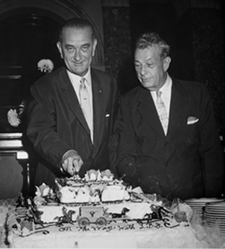It was a comment by Aron Michalski on a post-debate NewsGang Live: Obama was like Miles Davis, it was the notes he didn’t play that made the difference. Somehow that’s the image that has stayed with me. It’s not a frame that will gain wide usage, but I find it useful to measure the currents of both politics and technology. Leaving space for the silence, leaving space for the other players to fill in. Not responding to every theme sounded with a long personal improvisation, but sometimes just letting them finish. Letting the silence respond– opening a space for the next theme to be introduced. Perhaps we’re seeing a kind of post-Bebop public political conversation, it may be a new birth of cool. Lowering the temperature of the debate, moving from a hot sound to a cool sound.
And it’s not just a lowering of the temperature, it’s a move to modal jazz and away from being tied down to the chord changes. Wikipedia discusses the new direction of a modal approach:
An understanding of modal jazz requires knowledge of musical modes. In bebop as well as in hard bop, musicians used chords to provide the background for their solos. A song would start out with a theme, which would introduce the chords used for the solos. These chords would be repeated throughout the whole song, while the soloists would play new, improvised themes over the repeated chord progression. By the 1950s, improvising over chords had become such a dominant part of jazz, that sidemen at recording dates were sometimes given nothing more than a list of chords to play from. Creating innovative solos became exceedingly difficult.
In the later 1950s, spurred by the experiments of composer and bandleader George Russell, musicians began using a modal approach. They chose not to write their songs using chords, but instead used modal scales. This meant that the bassist, for instance, did not have to ‘walk’ from one important note of a chord to that of another – as long as he or she stayed in the scale being used and accentuated the right notes within the scale, he could go virtually everywhere. The pianist, to give another example, would not have to play the same chords or variations of the chords, but could do anything, as long as he or she stayed within the scale being used. The overall result was more freedom of expression.
In fact, the way that a soloist creates a solo changed dramatically with the advent of modal jazz. Before, the goal of a soloist was to play a solo that fit into a set of chords. However, with modal jazz, a soloist must create a melody in one scale (typically), which could be potentially boring for the listener. Therefore, the goal of the musician was now to make the melody as interesting as possible. Modal jazz was, in essence, a return to melody.
The addition of flexibility created a return to melody. It seems to be a change that is seeping into the general environment. I’d equate melody with pragmatism.

The conservative George Will recently stated that the next president will need to attend to the words of Everett Dirksen of Illinois:
“I am a man of principle, and one of my principles is flexibility.”
As we move in to these difficult economic times, we’ll need to improvise, not on the well-worn chord changes, but within the new modes that we find ourselves. It’s that cool temperament that will be able to reach out and find the melody of our times.
If only everyone who enjoys modal jazz could also embrace pragmatism in politics and economics.
It saddens me that some eloquent commenters on progressive blogs about economics may never see the correlation between their evolving tastes in music and the evolving nature of our economy. History may repeat itself in similarities but not necessarily in specifcs.
How sad it is that well-meaning, intelligent people who would truly enjoy this article and the accompanying music, may never see how they are part helping change progress or dragging it backwards. it IS an either/or proposition this time. This time, a protest vote just won't do.
Yes!!!!! Beautiful, as was @aronski's metaphor.